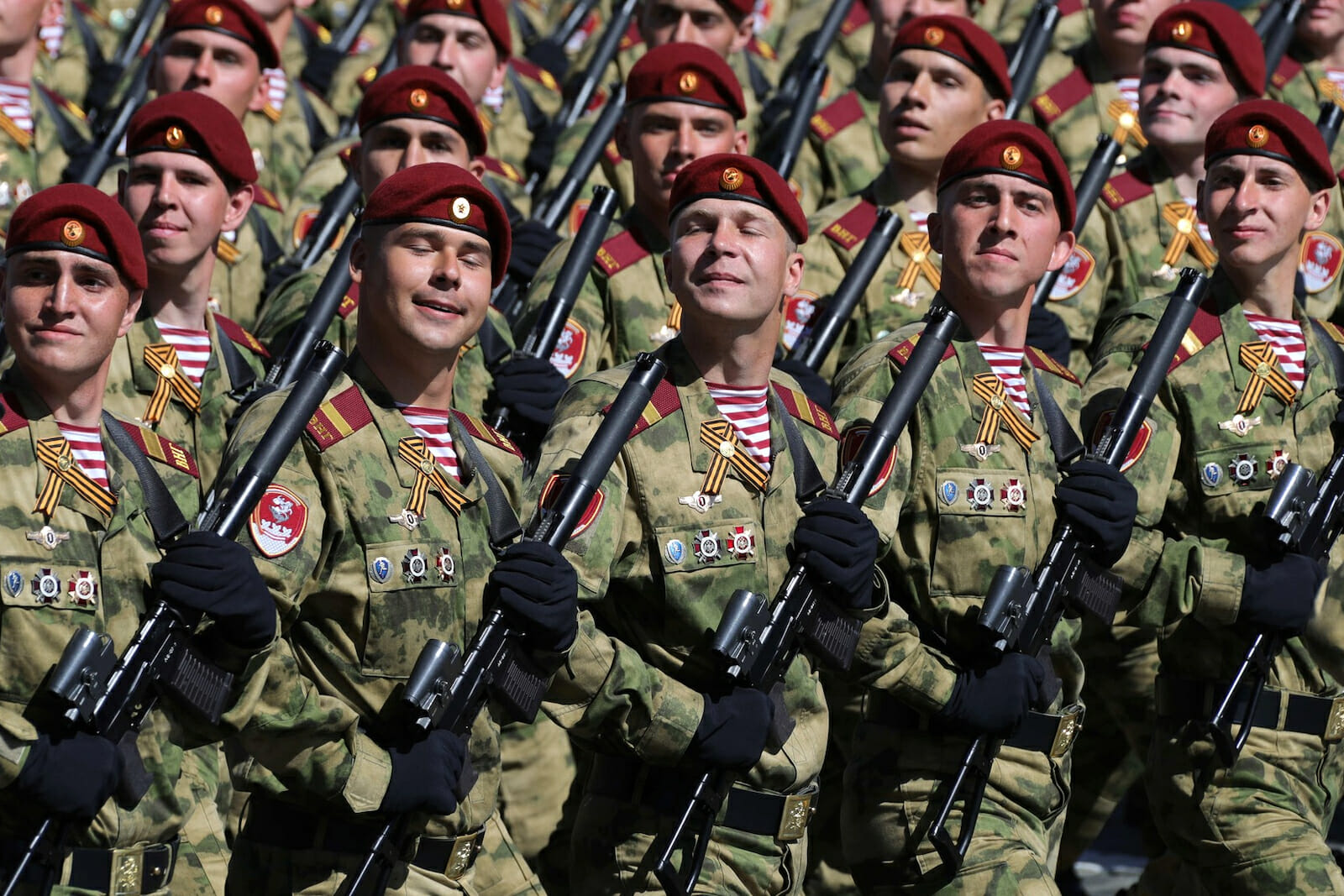
Do Russian Mercenaries Matter?
Over the past few months, I’ve had the opportunity to describe the activities of Russian paramilitary organizations to various audiences, including Congressional and Executive agency staff. One recurring question is, “How does this threaten U.S. interests?” That question is central to any discussion of international engagement: why, when, and how to apply our resources, and for what purpose? Just because something is contrary to U.S. policy doesn’t mean it threatens U.S. interests. So, alarming as these paramilitary organizations may be, what real threat do they present?
Russia uses non-state paramilitary organizations, including the so-called Wagner Group, as a tool in pursuing its national strategic objectives. According to the Russian Federation’s National Security Strategy, these aims include, “To enhance the competitiveness and international prestige of the Russian Federation,” to develop the Russian economy by securing access to natural resources and, “widening markets for the sale of Russian products” (primarily armaments.) Specific objectives include “the expansion of international military and military-technical cooperation” and “the exploitation of hydrocarbon deposits outside the Russian Federation.” All of this in a way that overcomes or works around the “imposition of restrictive economic measures against the Russian Federation.”
To achieve these security strategy objectives, Russia uses putatively private organizations that provide military-related services. They train the security forces of a client state and advise client state ministries, particularly defense and internal security. They may also perform site security for extracting natural resources and guard government officials. In these ways, they share similarities with Western contractors such as Dyncorp, Lockheed Martin, or Academi – or non-Western companies such as the Chinese/United Arab Emirates Frontier Services Group, run by Erik Prince.
This similarity is only superficial. When I was growing up in Chicago, an FBI investigator told me that Mafia-like organized crime was, “legitimate businesses that use illegitimate business practices.” This is a rough analogy to these Russian quasi-mercenary forces. These organizations have no or limited accountability under Russian law…or any law. In most cases, these aren’t even legal corporate entities as understood in the West. Where contracts exist, they are with Russian shell corporations, such as Concord Management and Consulting operated by Yevgeny Prigozhin (both the company and the person are the subject of U.S. sanctions.) In this way, Russia can deny any responsibility for or accountability over these allegedly non-existent armed groups or their activities.
The objectives served by Wagner and similar groups are Russian access to and control of foreign natural resources, the export of Russian armaments, paving the way for military-technical cooperation agreements, and, in some cases, strategic partnerships that may include the presence of or access by Russian military forces. Currently, Moscow claims that 30 countries in Africa have such military-technological cooperation agreements with Russia. Services provided by these organizations sometimes go beyond protection and training and may include active counter-riot operations (usually alongside local security forces), counter-insurgency, and combat – particularly when this is necessary to secure access to resource sites. The training they provide often seems inconsistent with the precepts of human rights. Some authors claim that disregard for Western human rights compliance is even promoted as a competitive advantage by Russian negotiators. Financing also departs from U.S. and Western government contractor support. U.S. foreign military sales are generally straight cash sales of goods and services. Other forms of security force assistance may be a little more convoluted. For example, the U.S. may provide monetary aid with the agreement that the aid will be spent on specific weapons and support.
Russian activity differs drastically. Sales are frequently on a loan arrangement. The client government winds up in a debt they cannot repay, which gives Russia greater leverage in exacting further “agreements.” The Russian affiliated military service providers and their corporate shells, lacking official government status, can take a more Mafia-like turn in exacting payment for their services. This often comes in the form of “a cut of the take” – a percentage of the output or sales from the natural resource sites they are guarding – or they capture. This results in lost income for the client state, reducing its ability to repay foreign loans, which increases the leverage Russia can apply against that government in support of Russian strategic interests.
Nowhere is the difference between Western private military and security companies and Russian quasi-mercenary organizations greater than in Ukraine. The Russian takeover of Crimea and combat operations in the Donbas regions were initiated by and continue to use non-state combat providers controlled by Moscow. The status of these organizations hides or seeks to avoid direct attribution to the Russian government. They mask the role of Russia in initiating conflict and can obstruct timely and effective reaction to aggression by other governments.
Going back to the beginning, the question remains, what interest is this to the United States? If a country in the developing world gets itself into a dysfunctional relationship with Russia, what concern is that to us? Why do we need to do something about it? What are the U.S. interests and how might the activities of these organizations threaten those national interests?
The 2017 National Security Strategy of the United States describes our national interests and threats to those interests. These interests include using American influence to set conditions for peace and prosperity and develop successful societies. Instability and weak governance threaten this outcome. Russian expansion and its use of quasi-mercenary organizations conflict with those interests and goals. In the developing world, Russia uses these organizations to prop up, in the words of the National Security Strategy, “anachronistic leftist authoritarian models that continue to fail their people.” They are a tool to “expand military linkages and arms sales across the region” which threaten the sovereignty of democratic states. In the Western hemisphere, the United States seeks to “limit the malign influence of non-hemispheric forces.” In Africa, the Strategy calls out “practices (that) undermine Africa’s long-term development by corrupting elites, dominating extractive industries, and locking countries into unsustainable and opaque debts and commitments.” This precisely describes Russian military-technical cooperation efforts in Africa and elsewhere. Russian organizations like Wagner are principal actors in those efforts.
The importance of the rule of law runs throughout the National Security Strategy. The business practices of Concord Management and Consulting, other shell organizations, and the military service providers they control undermine the rule of law wherever they operate. The conclusion of the National Security Strategy addresses this concern, saying, “There can be no moral equivalency between nations that uphold the rule of law, empower women, and respect individual rights and those that brutalize and suppress their people.” The track record of Russian military service providers proves them to be a clear enabler of regimes that brutalize and suppress their people.
The proliferation of Russian quasi-mercenary organizations clearly threatens the national interests of the United States in many ways. The next question is what we should do to contain and then negate the threats these organizations present.
